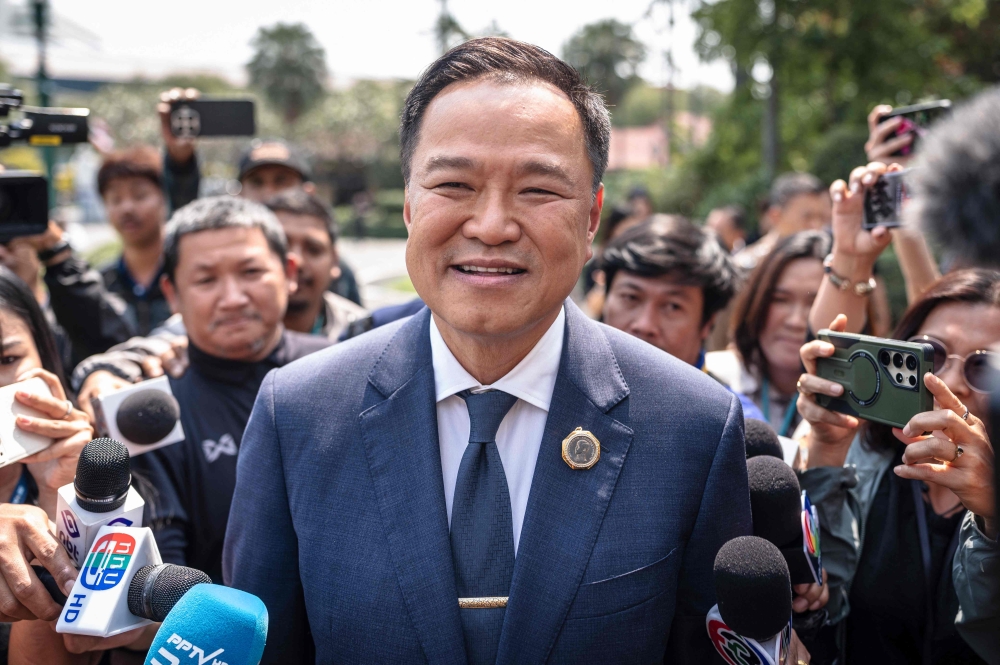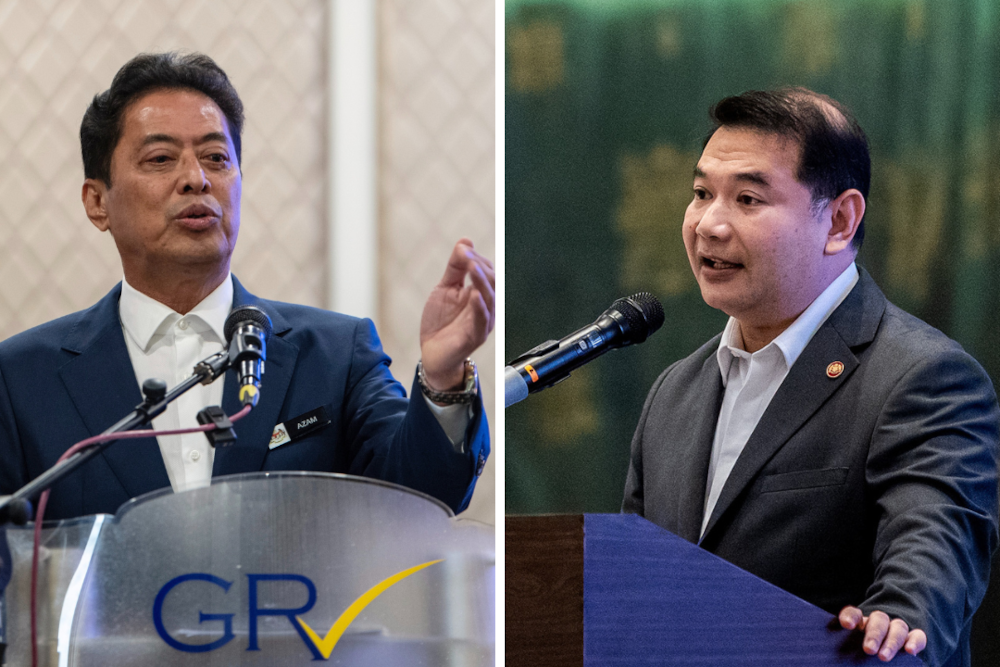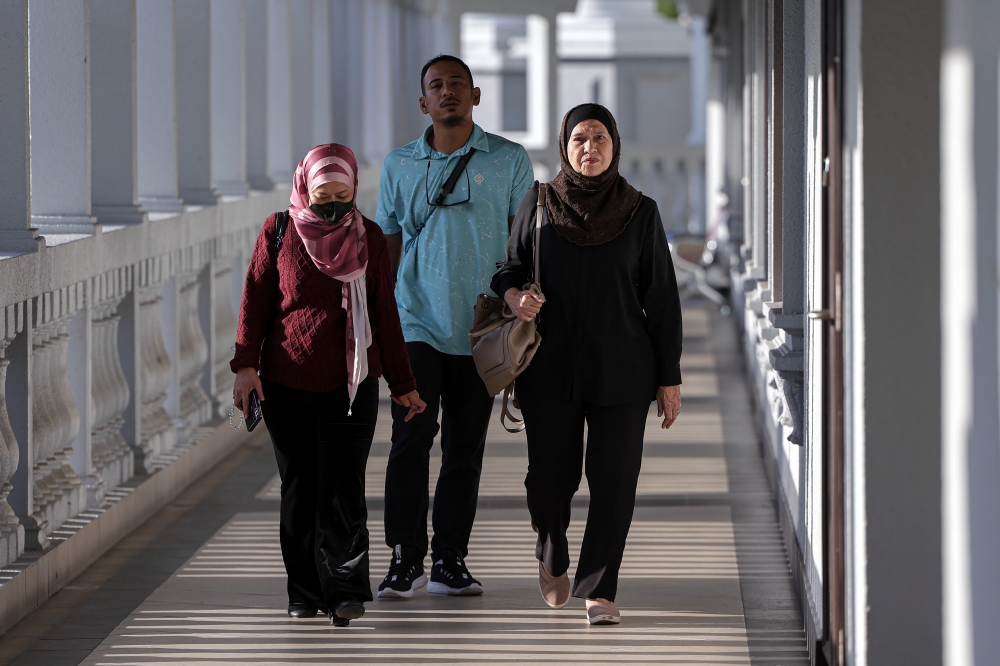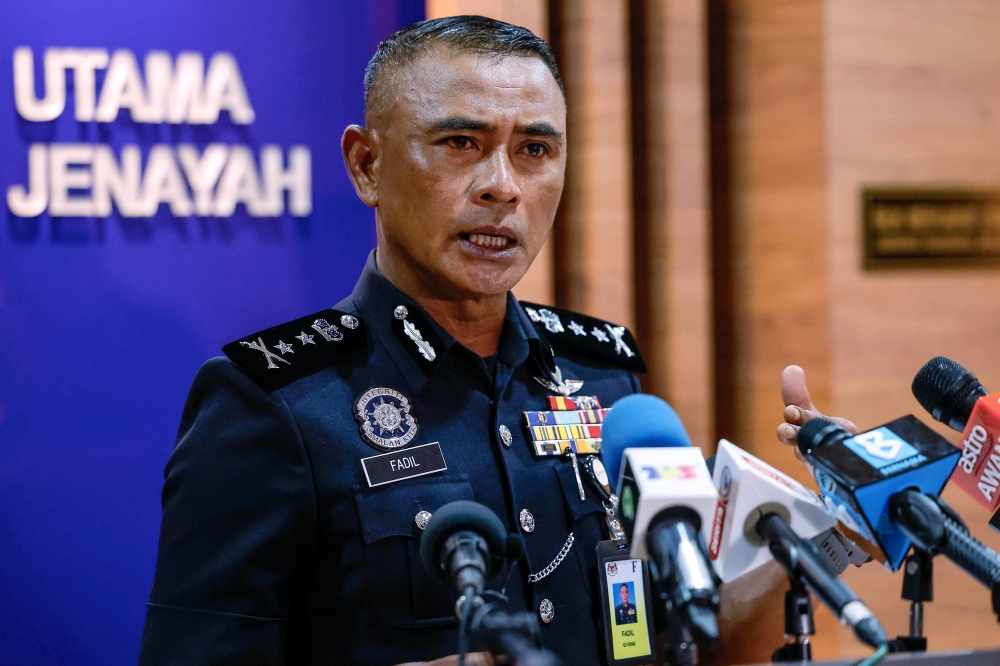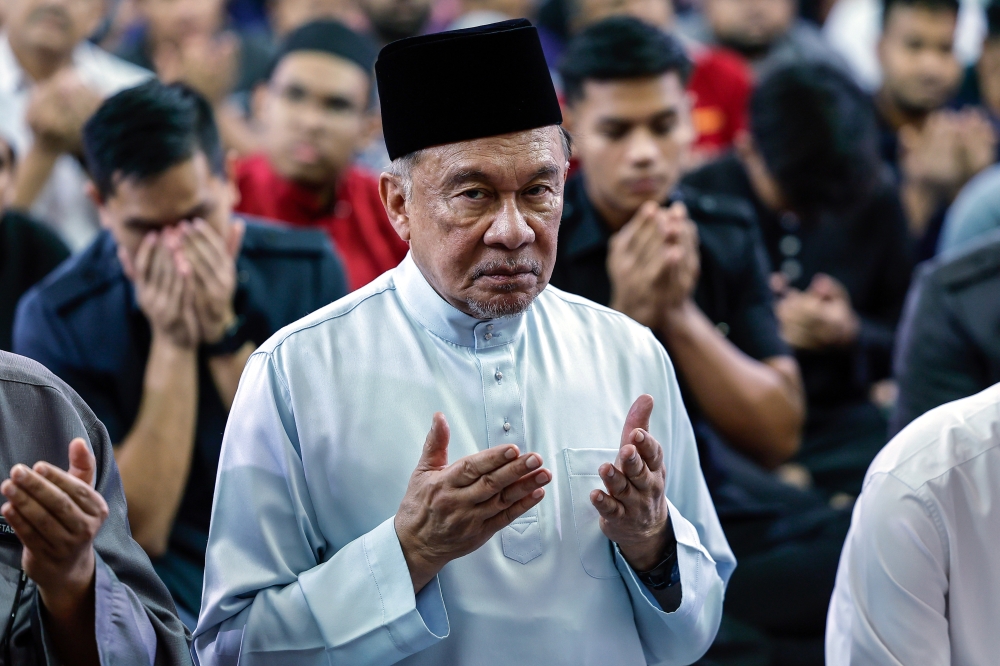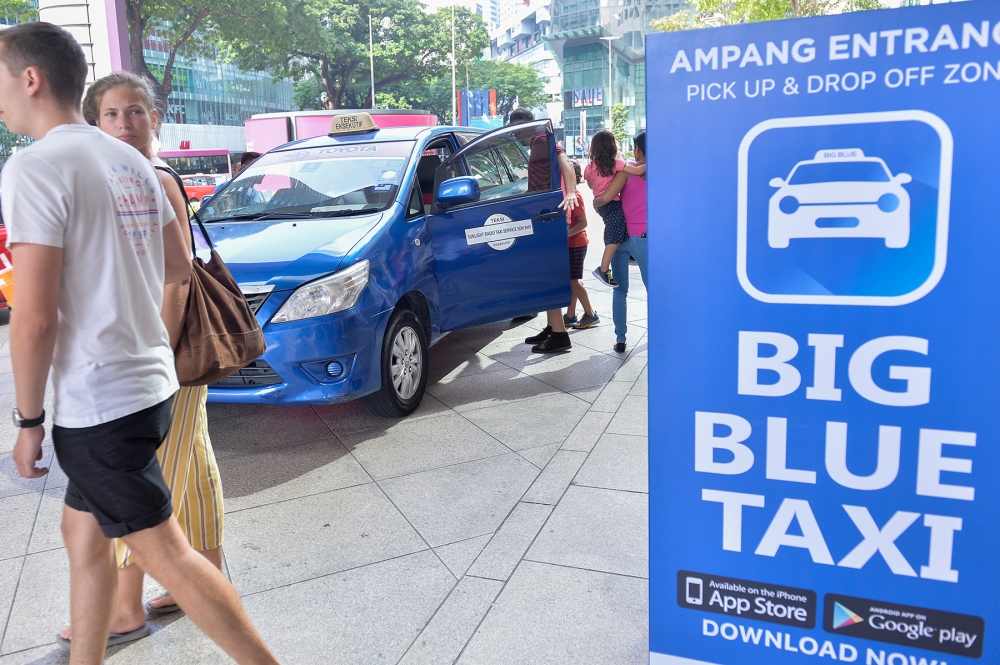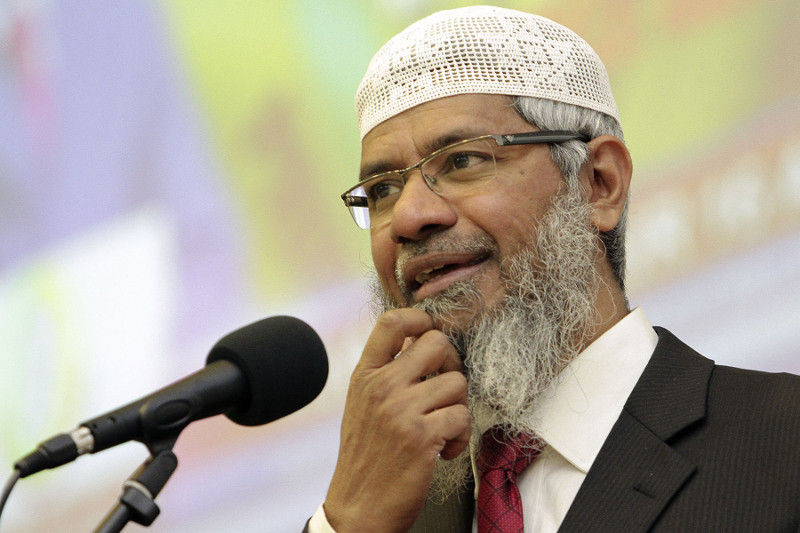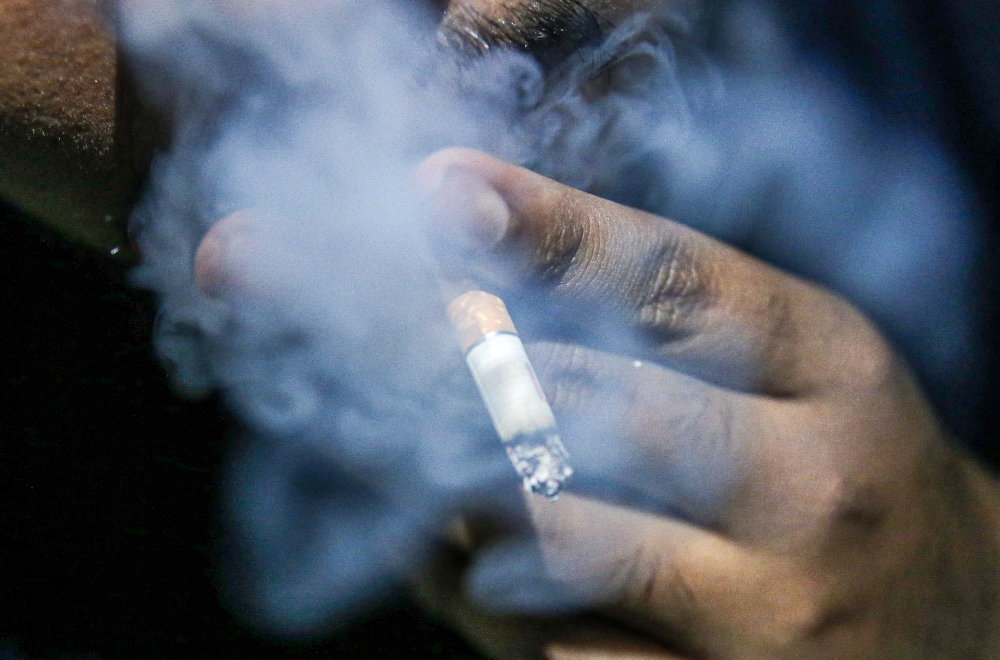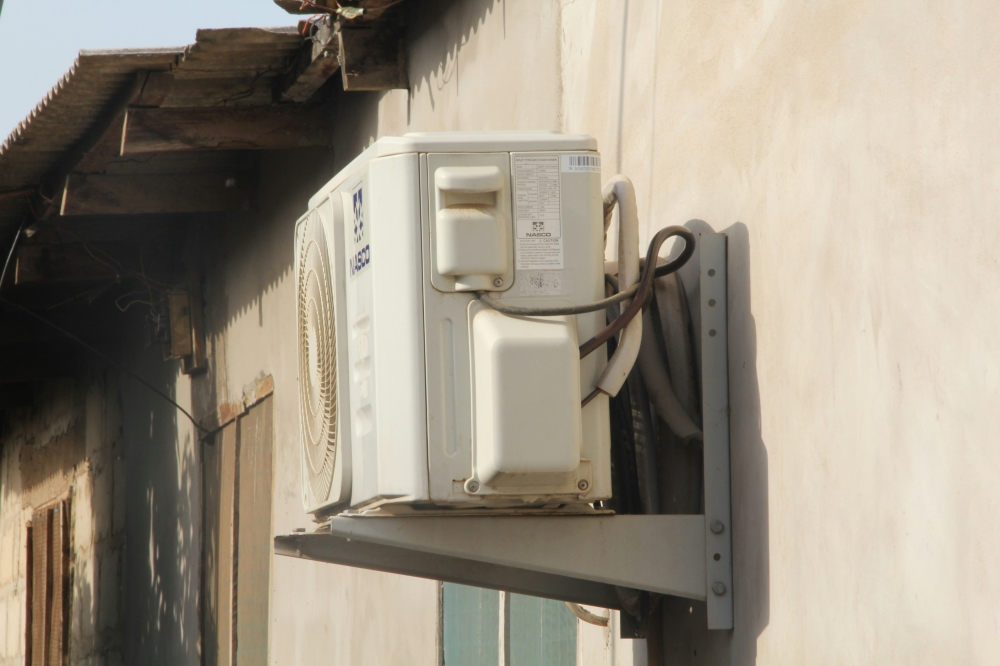KUALA LUMPUR, June 14 — Tun Dr Mahathir Mohamad’s claim that Malaysia has the right to refuse controversial televangelist Dr Zakir Naik’s extradition back to India is unjustified, lawyers and experts have said.
They also chided the prime minister for attempting to conflate Dr Zakir’s status to that of Sirul Azhar Umar's, the former police commando sentenced to death here for murdering Mongolian Altantuya Shaariibuu, currently seeking refuge in Australia.
"As a matter of law, Zakir Naik ought to be extradited if there is a request made by India, save and unless the operative provisions of Section 8 of the Extradition Act 1992 comes into play," lawyer Nizam Bashir told Malay Mail.
Malaysia and India signed an extradition treaty in 2010.
Section 8 of the Extradition Act 1992 imposes restrictions on the executive power to surrender fugitive criminals to a country seeking the return of such criminals.
Nizam explained that under the Act, an extradition can be prevented if the offence is of political nature, or the courts believe that the offender may be tried or punished for political reasons in his home country.
In addition, Putrajaya can also deny such a request if the fugitive is being prosecuted or punished on account of his race, religion, nationality or political opinions, or if the fugitive may be prejudiced at his or her trial.
"However, there is nothing on the present facts which would justify Malaysia refusing to accede to an extradition request for Zakir Naik,” he said.
"The same cannot be said of Australia refusing to extradite Sirul, given that Sirul would be facing capital punishment on repatriation to Malaysia.”
Earlier this week, Dr Mahathir claimed that Malaysia has the right to not extradite Dr Zakir, an Indian national, since the latter alleges he will not be accorded justice back home — comparing the situation to Sirul’s.
In February, an Australian court had rejected Sirul’s application for political asylum there after concluding his conviction for killing Mongolian Altantuya Shaariibuu was not political in nature.
However, Malaysia must still repeal the country’s death penalty before Australia can legally comply with the extradition request.
In response, DAP Legal Bureau chairman Ramkarpal Singh said Malaysia should not jump to conclusions on whether or not Dr Zakir will receive a fair trial in India and the government should respect its counterpart’s legal system.
The Bukit Gelugor MP said that unlike the case of Sirul where Australia refused to expatriate him as he faces the hangman’s noose, Dr Zakir is only still facing trial.
Several lawyers have since pointed out that Malaysia has an obligation to cooperate with India, including Asiah Ab Jalil, who concurred with Nizam.
"Under international law, based on principle of sovereignty, a state is not obliged to surrender an alleged criminal to a requesting state. But if there is an extradition treaty between both states, the consensus is that both states have international obligation to assist each other,” she said.
"Generally, extraditable offences include crimes that are punishable in both countries. It's called ‘dual criminality’.
"In Zakir Naik's issue for instance, the offence allegedly committed is money laundering. Money laundering is a crime everywhere in the world, including in Malaysia and India. So the dual criminality requirement is satisfied," Asiah said.
Asiah was among those who had filed a lawsuit against Putrajaya for refusing to deport Dr Zakir in 2017, but the suit was thrown out by a High Court last year.
Asiah added that if the government insists that Dr Zakir's deportation is unnecessary, on the grounds that he would not receive a fair trial back in his home country, the same impression could also be applied to the case of fugitive tycoon Low Taek Jho, or Jho Low, who has also claimed political persecution.
Meanwhile, Singapore Institute of International Affairs senior fellow Oh Ei Sun warned that when one country steadily reneges on extradition requests of another country, the requesting country may also reciprocate with the same reaction in the future.
Oh also suggested that Dr Zakir has now found a safe haven in Malaysia, and therefore unlikely to be deported anytime soon with support ranging from Islamist groups to political elites.
"Whether we like it or not, the cold, harsh fact is Zakir has many, many fans in this country, not only among the religiously conservative and extremist elements, but even among the so-called mainstream, elite circles, as is evident in his being warmly welcomed and entertained by senior politicians from both the present and former regimes.
"So, as long as religious bigotry is still the mainstay of this country, it is extremely unlikely that Zakir will ever be extradited. Rather, he will continue to enjoy the warm hospitality of the religiously bigoted elements in this country, many of whom unfortunately somehow always manage to insinuate themselves into positions of power," he added.
Yesterday, the government of India made a formal request to the Malaysian government to send Dr Zakir back home to face money laundering charges .
On its website, the country’s Ministry of External Affairs said that India’s justice system has never been questioned, in response to media queries following Dr Zakir’s allegations that he would not be accorded a fair hearing if he returned home where he has also been accused of hate mongering.
It was reported earlier that India’s Enforcement Directorate (ED) will seek Interpol’s cooperation to detain controversial preacher Dr Zakir with an eye on extraditing him from Malaysia to face money-laundering charges in the South Asian country.
The ED is reportedly working on getting a non-bailable warrant for Dr Zakir’s arrest from a Mumbai court, which it expects to secure on June 19.
It had charged Dr Zakir with laundering criminal money worth 193 crore Indian rupees (RM115 million) and allegedly bought illegal real estate assets across the world.
Last month, the televangelist has however conceded that he was willing to face justice back in India, but only if he is not arrested there until he is tried in court and convicted.
Dr Zakir has been controversial because of his puritan brand of Islam — recommending the death penalty for homosexuals and ex-Muslims, according to media reports.
He has been banned in several countries such as United Kingdom, Canada and Bangladesh, but has found refuge in Malaysia, despite being accused of denigrating other faiths and being a threat to Malaysia’s multiethnic and multicultural harmony.
Putrajaya has said it does not find anything wrong with Dr Zakir’s speeches, and the Muslim preacher may stay in Malaysia as a permanent resident as long as he does not break any laws.







